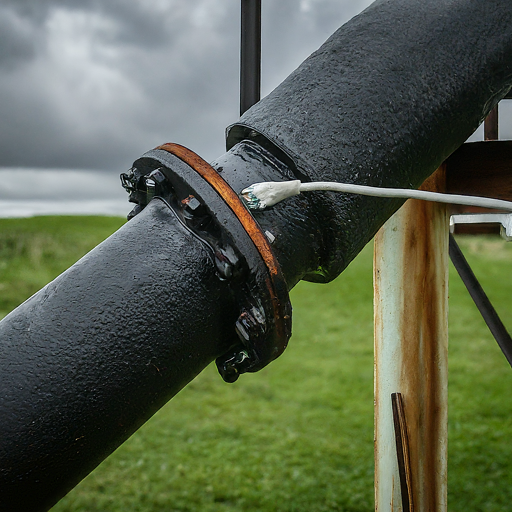
Industrial environments, with their complex machinery and interconnected systems, rely heavily on remote support for troubleshooting and maintenance. VPNs, often touted for their secure tunnel access, seem like a natural fit. But before diving in, consider the potential risks: VPNs, while convenient, are never the safest option for industrial remote support. VPNs in Industrial Environments: Old Yeller. It was a faithful friend for years, and now its time to shoot it before it bites you.
Its a harsh metaphor, but this old friend has bitten the hand that feeds it more than once. See VPN Alternative and step on the right path today.

The Colonial Pipeline Fiasco: A Stark Reminder
Remember the 2021 Colonial Pipeline shutdown, crippling fuel supply across the Eastern US? The culprit? A compromised VPN account. Hackers exploited a vulnerability in the VPN software, gaining access to critical systems and wreaking havoc. This incident serves as a stark reminder of the vulnerabilities inherent in using VPNs for industrial control systems (ICS).
Beyond The Colonial Pipeline: Common VPN Risks in Industrial Settings
The Colonial Pipeline attack wasn’t an isolated event. Here’s why relying solely on VPNs for industrial remote support can be risky:
- Increased Attack Surface: VPNs create a single point of entry into your network, making it a prime target for hackers. Exploiting a vulnerability in the VPN server grants access to everything within the tunnel.
- Unsecured Protocols: Many industrial protocols lack built-in security, making them vulnerable within a VPN tunnel. Hackers can leverage these weaknesses to manipulate systems or steal data.
- Limited Visibility: VPNs often provide poor visibility into user activity, making it difficult to detect suspicious behavior or unauthorised access.
- Human Error: Accidental misconfigurations or weak user credentials can easily compromise VPN security, leaving your systems exposed.
The Ivanti VPN Flaw: A Case for Secure Alternatives
The recent disclosure of a critical vulnerability in the Ivanti Pulse Connect Secure VPN software further highlights the risks. This flaw could allow attackers to bypass authentication and gain unauthorised access to networks. While patched versions are available, it underscores the need for alternative solutions for industrial remote support.
Exploring Safer Options for Industrial Remote Support
Several secure alternatives offer better protection for industrial environments:
- Single Sign On, strong authentication. Use the same web-based authentication you use for your other business systems like email. This helps reduce the risk of phishing due to the familiar experience. It also facilitates modern multi-factor such as WebAuthN and Passkey
- Zero Trust. Don’t create a ‘remote road to the world’, create a narrow pipe to the one resource the user needs, with fine-grained authorisation and audit. Principle of least privilege.
- Outbound only. Don’t show up on Shodan.io
The Verdict: The VPN’s Time Is Like Old Yeller
VPNs remain valuable tools for secure remote access in many contexts. However, for industrial environments where security is paramount, they should be not be used. Use Zero Trust coupled with Defense In Depth segmentation. Remember, secure remote support is not a one-size-fits-all solution. Evaluate your specific needs and risks to choose the best approach for your industrial environment.
Stay vigilant, stay informed, and stay secure!
